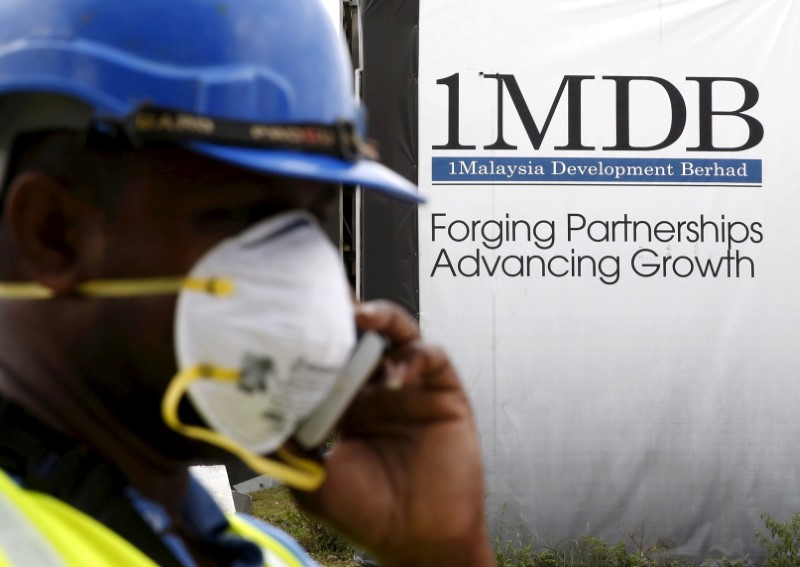KUALA LUMPUR, May 30 — Malaysia’s scandal-plagued state investment fund 1MDB has a RM143.75 million (US$36 million) bond coupon payment that may still be due this month. With the company unable to repay debt, the government has said it will honour 1MDB’s obligations as it had done since April 2017.
This is what you need to know about 1MDB’s path to insolvency, the debt commitments that the government’s earmarked RM38 billion for, and who else could be saddled with payments.
What is 1MDB and how did it get so indebted?
1Malaysia Development Bhd took shape in 2009 under former Prime Minister Datuk Seri Najib Razak as a vehicle to drive investment into Malaysia and boost the country’s assets overseas. Early initiatives included buying privately-owned power plants and planning a new financial district in Kuala Lumpur, and it raised more than US$8 billion (RM32 billion) via bond sales to do so.
Plagued by heavy debt and questions about its management and investment decisions, 1MDB grew into a scandal that moved closer and closer to the heart of government, culminating in global probes into alleged embezzlement and money laundering. Investigations and audits suggested not all the money the company raised were used as intended (US investigators allege a small group of Malaysians may have diverted more than US$4.5 billion from the fund.)
Cash flow problems emerged, made worse by a failed attempt to sell shares in its energy unit. 1MDB missed due dates on bank loans and defaulted on coupon payments in 2016 amid a dispute with the co-guarantor of two of its bonds.
What triggered disclosures of 1MDB’s insolvency?
A new government came to power this month in a shock election victory and quickly reopened investigations into the fund. That includes figuring out if any of its money ended up with Najib, who once chaired its advisory board, and reaching out to global investigators who had complained of a lack of cooperation from Malaysian authorities under the previous administration.
The day after Finance Minister Lim Guan Eng was sworn into office, he said the government had been “bailing out” 1MDB since April 2017 in coupon and debt settlement obligations. That was contrary to previous statements by 1MDB that payments were made from the fund’s rationalisation exercises, he added.
Lim said PwC will be appointed to conduct a special position audit and review to uncover “the true financial state of affairs” at the fund and “determine the cost of the shenanigans to the taxpayers.”
Exactly how much debt are we talking about?
1MDB President Arul Kanda said in May there was RM31 billion of mostly long-term debt outstanding, down from a peak of RM50 billion. Malaysia has earmarked RM38 billion to pay back 1MDB’s borrowings, Lim said.
Data compiled by Bloomberg show RM26.3 billion in bond principal due by 2039. That doesn’t include a US$1.75 billion bond that was a private placement, and when interest on all its borrowings is included, calculations show the liability climbs an estimated US$3.1 billion at the current exchange rate. That brings the total to about US$11.5 billion. The finance ministry couldn’t immediately confirm Bloomberg’s calculations.
Here is a summary of the bonds:
RM5 billion of 30-year bonds due 2039 carrying an explicit government guarantee. Funds were meant for a stake in an oil and gas venture with PetroSaudi International. In 2012, Goldman Sachs Group Inc underwrote US$3.5 billion of 10-year debt due in 2022 in two sales. Funds were meant to purchase power assets. The notes are guaranteed by the finance ministry and Abu Dhabi’s International Petroleum Investment Co, or IPIC US$3 billion of 10-year bonds due in March 2023. Also arranged by Goldman, proceeds were intended for a joint venture with Abu Dhabi, and a possible investment in an existing property project known as Tun Razak Exchange in Kuala Lumpur. The debt has a letter of support from the government. RM2.4 billion of notes maturing between 2021 and 2024. It was sold by former 1MDB unit Bandar Malaysia Sdn to develop a property project in Kuala Lumpur. The company has since been transferred to the finance ministry.
Will bondholders get paid and by whom?
Malaysia’s new government has said it will pay 1MDB’s debtors. The finance ministry said it has made RM6.98 billion of payments for 1MDB since April 2017, including RM5.05 billion as part of a debt settlement with IPIC.
If the Malaysian government changes its mind on its 1MDB liabilities, IPIC may have to come through. It did so in 2016 when it was compelled to make two interest payments on 1MDB debt, after the latter refused during a dispute. In 2017, a settlement agreement showed 1MDB and the Malaysian finance ministry undertook to IPIC that they would assume responsibility for all future interest and principal payments under the two bonds.
IPIC completed a merger with sovereign wealth fund Mubadala Development Co last year. A Mubadala representative declined to comment on 1MDB’s insolvency and agreements with it.
Can Malaysia afford to assume 1MDB debt?
The finance ministry says Malaysia’s government debt and liabilities exceed RM1 trillion, a number it said was higher than what was disclosed by Najib’s administration. While the federal debt figure of 50.8 per cent of gross domestic product matched previously reported numbers, Lim said government guarantees and lease payments for public-private projects took total debt to 80.3 per cent of GDP.
Credit rating companies and economists have long raised risks related to Malaysia’s off-budget debt, even though the previous government made strides in bringing the fiscal deficit down to 3 per cent of GDP.
Still, the ratings companies have said a default on 1MDB’s bonds would have a limited impact on the sovereign’s other notes, and the country can bear its debt burden along with the fund’s. Standard & Poor’s said this month it doesn’t see 1MDB affecting Malaysia’s rating, while Fitch Ratings said it had long viewed the fund as a close contingent liability of the sovereign. — Bloomberg



















